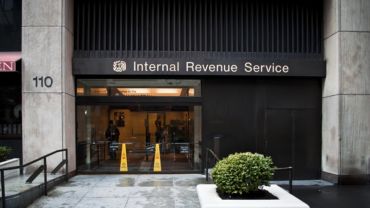Denise Hintzke is a Managing Director in the Financial Services Tax practice at Deloitte Tax LLP, where she serves as a leader in their Global Information Reporting practice as well as their Foreign Account Tax Compliance (FATCA) and Common Reporting Standard (CRS) initiatives. In her role, Ms. Hintzke works closely with the Deloitte member firms as they deploy cross-functional talent to the global market place in response to the demanding requirements of the provisions of the FATCA and the new CRS.
Ms. Hintzke answered the following questions for BEPS Global Currents on May 16, 2018 regarding the compliance with the FATCA and CRS:
Q: What part of compliance is posing the biggest challenge to financial institutions under FATCA and CRS, and how can financial institutions better manage reporting?
A: There are a number of things that Foreign Financial Institutions (FFIs) and Financial Institutions (FIs) are challenged with, but what seems to be the most difficult for a number of institutions are the due diligence procedures that they have had to put into place to identify the tax residency of their account holders and investors. Many times, just getting their customers to respond to the documentation request is difficult.
When the documentation does come in, it may not be completed correctly. They are then potentially walking a thin line between trying to assist their account holders and investors in completing the forms correctly and not providing tax advice. When you layer in the fact that they need to train staff appropriately to review the documentation and put into place new procedures to vet other customer information, the task can be quite daunting.
Q: Do you believe financial institutions have been reluctant to implement technology and processes to tackle the FATCA and CRS regimes? What benefits are there to proactively addressing these requirements?
A: Many institutions have actually taken on the challenge and are trying to be proactive in addressing the requirements. In those situations where they are not, I believe that that there are a number of factors involved, including training constraints, cost, complexity, and requirements that continue to evolve. For many organizations, FATCA has now become business as usual. They have taken the time to develop appropriate policies, procedures, and the supporting technology to address it. However, there can still be struggles with collecting appropriate documentation and other information needed for reporting. The fact that they now also need to coordinate FATCA with the requirements that they are adopting under CRS can sometimes complicate compliance.
Q: In March 2018, the IRS released draft questions for Responsible Officers related to FATCA certification for an entity’s preexisting accounts (“COPA”) and compliance with various FATCA requirements (“periodic certification”). Why are the certifications important? Do you expect any changes to the questions before the portal opens July 1, 2018, and is there concern by the three-month window to report?
A: I would not anticipate major changes to the drafts released in March 2018, as they are in line with what was expected. There may however, be a few technical corrections needed. FFIs in Model 2 and Non-IGA countries are required to certify that they are meeting the requirements of the FFI Agreement and that they have appropriate processes, procedures and controls in place. The hope is that, by requiring Responsible Officers, who are generally senior officials within the organization, to certify that they are in compliance organizations are more likely to meet their compliance requirements. Although, there may be some concern among financial institutions regarding the short three-month window, many have been aware of this certification requirement for a long time and have been taking actions to ensure that they can make an accurate certification.
Q: What impact do you see on taxpayers and financial institutions as a result of the new mandatory disclosure rules with respect to CRS avoidance arrangements and opaque offshore structures?
A: It is one of several actions being taken by the OECD to try to identify situations where taxpayers are trying to circumvent the reporting requirements. On March 9, 2018, the OECD published the new model disclosure rules that require intermediaries, including lawyers, accountants, financial advisors, banks, and other service providers to inform tax authorities of any schemes they put in place for their clients to avoid reporting under the CRS. EU member states have already agreed to implement these rules as part of a wider directive on mandatory disclosures. They are also reaching out to jurisdictions that provide citizenship by investment in order to make them aware of potential abuses, and assist them in adopting mitigating measures and establishing a list of high-risk schemes and their potential to undermine the CRS due diligence and reporting requirements.
Q: What key dates remain for FATCA and CRS reporting in 2018, and how should financial institutions prepare for long-term compliance?
A: Institutions in CRS late-adopter jurisdictions are still undertaking remediation efforts and in many situations, these will need to be completed by the end of 2018. In addition, the FATCA and CRS reporting season is just starting with quite a few jurisdictions having deadlines in May and June 2018. In order to really make the new requirements business as usual, in the long-term financial institutions need to develop solutions that will allow them to collect and maintain the necessary data, vet it for accuracy, and then report it to the appropriate authorities in a more automated manner.
This article does not constitute tax, legal, or other advice from Deloitte LLP, which assumes no responsibility regarding assessing or advising the reader about tax, legal, or other consequences arising from the reader’s particular situation.
Copyright © 2018 Deloitte Tax LLP. All rights reserved.
Click here for more information on our BEPS research and technology solutions to address your immediate and ongoing needs.






